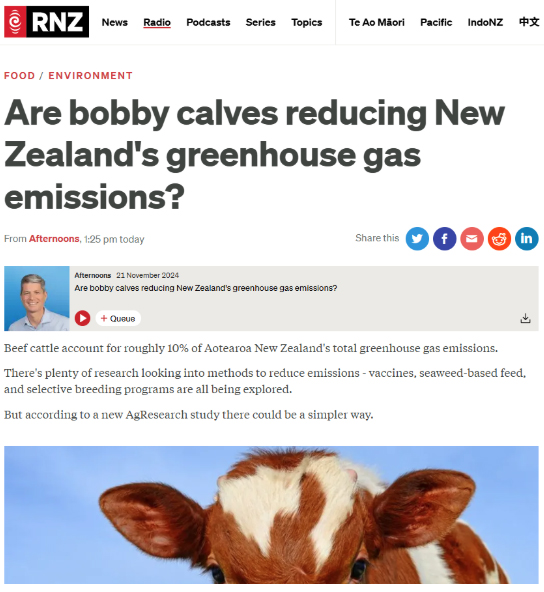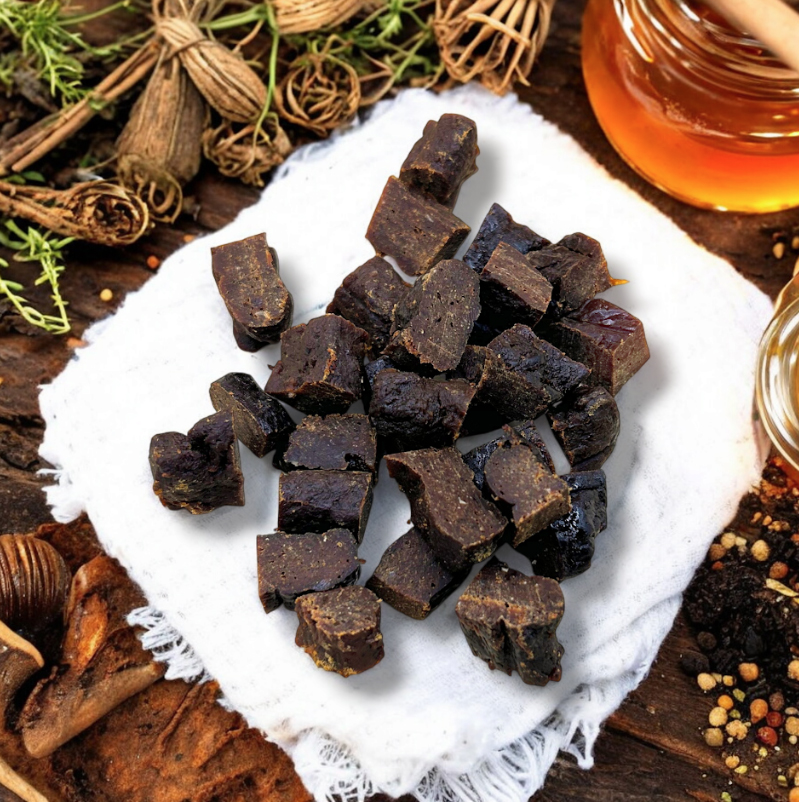NZ’s Low-Carbon Beef Production Set to Grow Following Recent Research
Impact PR client NZ Food Innovation Network recently supported the market launch of Mīti, the world’s lowest-carbon meat snack. As one of the most respected food and beverage public relations agencies in New Zealand, Impact PR orchestrated comprehensive media coverage for the project, securing significant media coverage across top publications like NZ Herald, RNZ and industry-specific platforms.
See the details below and find the full story here:

A new study suggests that New Zealand’s low-carbon beef production is poised for growth, revealing that younger dairy cattle emit almost half the greenhouse gases compared to older steers.
This shift could address a key ethical and environmental issue for the country’s dairy sector, which involves culling nearly two million four-day-old bobby calves annually. The practice faces scrutiny and raises questions about the dairy industry’s social licence to operate.
According to a recent AgResearch report, dairy-derived beef raised to 10-18 months has a carbon footprint 29-48% lower than the mixed beef cattle average in New Zealand. The researchers observed that in dairy production, emissions are split between milk and live weight sold for meat, meaning only part of the emissions are attributed to the beef. Conversely, all emissions in beef systems are allocated to the meat since they only produce live weight.

Daniel Carson (Ngāi Tahu), founder of the Māori-owned agribusiness Mīti, which commissioned the research, says their aim is to turn young dairy calves, typically slaughtered at four days old, into a sustainable and profitable food source. By extending these calves’ lifespan by up to a year, they create a new market for a low-emission protein source, adding value to both the dairy and beef industries.
Carson hopes the study will support the development of a new low-carbon, young beef category named Mataora, designed for manufacturing into high-value products. This could lead to more efficient use of New Zealand’s meat processing infrastructure and low-carbon leather for the luxury fashion sector.
Currently, young bobby calves are considered surplus, with the system treating them as a waste product. Farmers earn around $35 per bobby calf sold for pet food, about $2 per kg of carcass weight. In contrast, Mīti’s new meat snack for export could yield farmers four times more per kg. This marks a significant shift in the dairy industry’s economics and presents a unique opportunity for New Zealand to create a new meat category.
At a time when parts of the meat processing sector are closing and global protein demand is rising, Carson believes low-carbon beef could spawn a new food manufacturing and textile industry for New Zealand. While research has supported product prototype development, there is a lack of contract manufacturing facilities in New Zealand capable of producing at an export scale.
Carson says they partnered with the New Zealand Food Innovation Network (NZFIN), a Crown-funded applied science and commercialisation organisation, which manufactured the product and is providing an export pathway into Asia. Grant Verry, NZFIN Co-CEO, says their role is to help ambitious food and beverage businesses commercialise their products, aiding them in scaling up production.
To achieve the government’s goal of doubling food export value over the next decade, it’s crucial to amplify business models like Mīti’s. By adding significant value to what is seen as a waste product, Mīti is creating an export market for a sustainably-produced, all-natural beef product. Infused with kānuka smoke and New Zealand Black Beech Forest honeydew, it’s believed to be the world’s lowest carbon meat snack.
This concept could inspire other innovations, promoting better utilisation and incentives to age these bobby calves. NZFIN is working with Mīti to develop a pathway to market beyond New Zealand, helping them achieve export ambitions and introduce their low-carbon beef product globally. The Asia Pacific Food Innovation Network connects businesses like Mīti to new markets, leveraging partnerships to help them succeed internationally.
Carson says they launched a pre-sales fundraising campaign via PledgeMe to boost awareness and export sales of the new product.

If you have questions about public relations, contact us today. – we would love to help.
